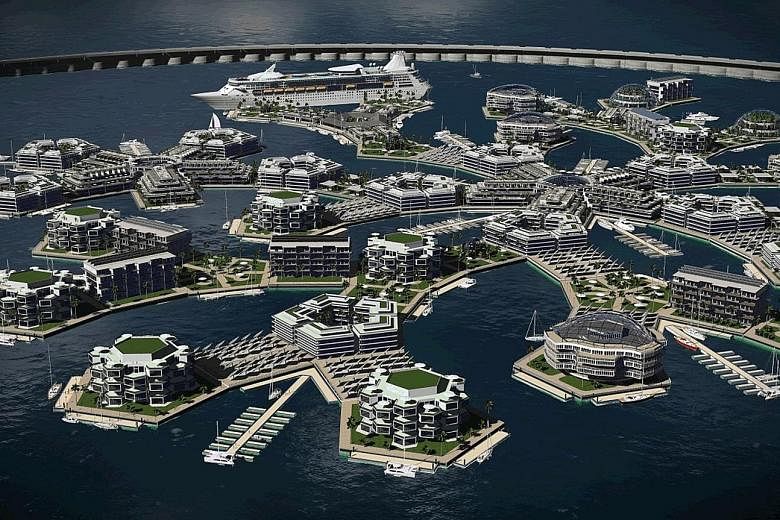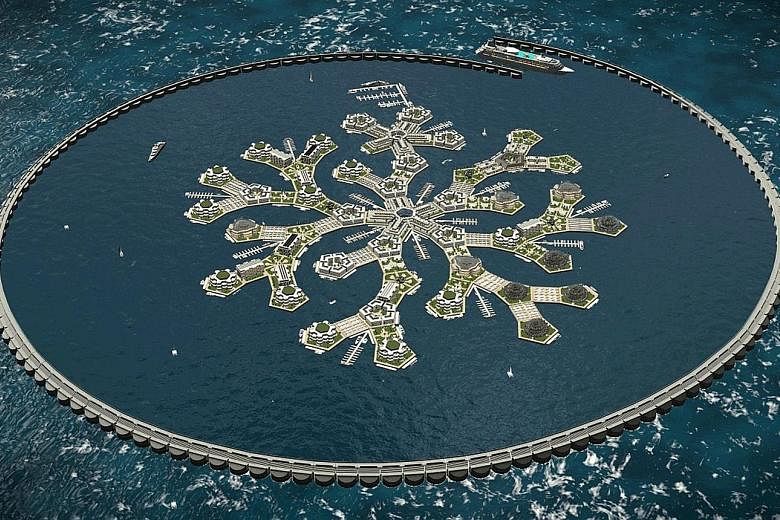SAN FRANCISCO • The world's first floating city could be constructed in the waters of French Polynesia after its government signed an agreement with a United States company in San Francisco.
The Seasteading Institute, which was launched in 2008 with financial help from billionaire PayPal founder Peter Thiel, has been researching the potential for "permanent, innovative communities floating at sea" for the past five years. Floating cities are seen as a possible solution to rising sea levels around the Pacific.
Finding a host nation was a significant milestone, the institute's executive director Randolph Hencken told Australian public broadcaster ABC News.
Now, with a memorandum of understanding signed last Friday, the institute is hopeful construction can begin in 2019.
The institute was founded by Mr Wayne Gramlich and Mr Patri Friedman in 2008 to establish autonomous, mobile communities on seaborne platforms operating in international waters.
This libertarian utopian vision has been adjusted for practical reasons. The French Polynesian prototype will be built close to shore and in sheltered waters.
"We were looking for sheltered waters - we don't want to be out in the open ocean - it's technologically possible but economically outrageous to afford," Mr Hencken told ABC. "If we can be behind a reef break, then we can design floating platforms that are sufficient for those waters at an affordable cost."
In an interview with Singapore's Business Insider last October, he suggested that he would be able to take a speedboat to French Polynesia to take yoga classes and go to restaurants. The islands would also provide a construction base, he said, further reducing costs.
Next steps for the project involve economic and environmental impact studies as well as legal investigations to figure out the special governing framework the institute believes is crucial to the ongoing success of its floating communities.
Under the institute's deal with French Polynesia, the BBC reports, the project has to prove whether it will benefit the local economy and whether it can avoid damaging the environment.
Only then can the institute begin developing what it calls a "unique governing framework" that will need to be approved by the local government and, potentially, France, which ultimately holds the territory.
Mr Hencken insists that living closer to the sea will reverse the attitude that "oceans are a hunting ground, a superhighway and a garbage can". He has also praised the stable institutions, friendliness and security of the "paradise" of Tahiti, in contrast to some more freewheeling and corrupt places the institute has considered in the past, reports the BBC.


